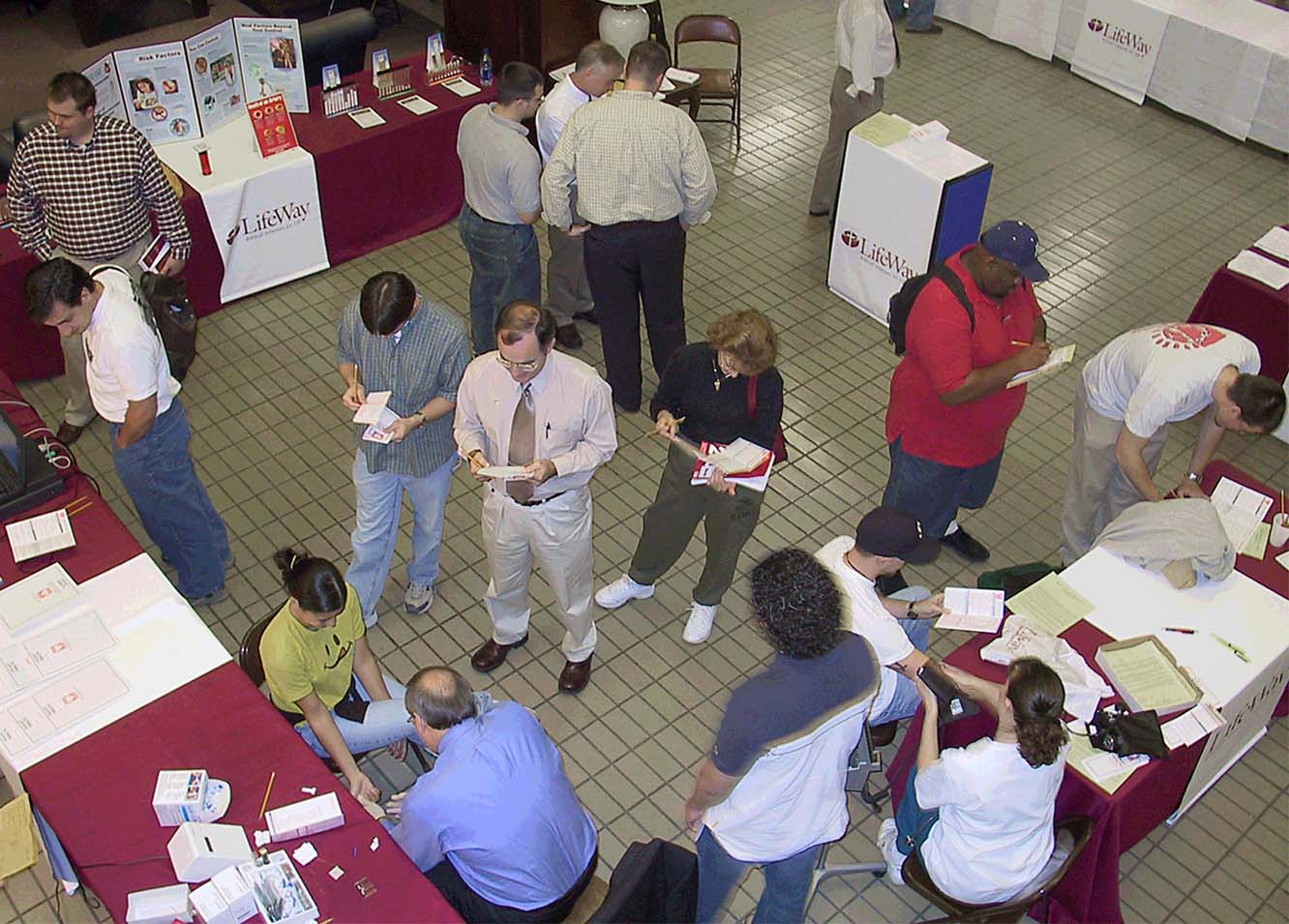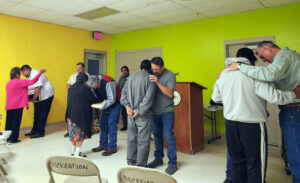
NEW ORLEANS (BP)–Blame it on the fried chicken dinners and those world-famous potlucks, but Southern Baptist ministers face high risks of heart disease and obesity.
And that’s a lifestyle many Southern Baptist seminary students also are following, said Tommy Jobe, a registered clinical exercise physiologist with Christian Wellness Concepts.
“At another seminary where we provided health screenings, about 70 to 75 percent of seminarians were moderate-to-high risk for heart disease,” Jobe said. “I have seen statistics that say 78 percent of ministers are either overweight or obese.”
That’s why LifeWay Christian Resources offers student health screenings free of charge at each of the Southern Baptist seminaries during LifeWay Emphasis events. The weeklong emphasis helps develop relationships between LifeWay and seminary students preparing to launch their ministerial careers.
The health screenings are designed to encourage healthy lifestyles and alert students to early warning signs of unhealthy living.
“Beginning and maintaining a healthy lifestyle is a significant factor for effectiveness in ministry,” said James T. Draper Jr., president of LifeWay. “Because of that, health screening is necessary to identify areas of concerns for long-term health. Since our desire is to be a lifelong partner with our ministers, it is important that they begin the process of wellness discipline while they are in seminary.”
As part of the free health screenings, faculty and students can participate in various tests, including blood pressure, body fat percentage, height, weight, total cholesterol, HDL cholesterol and glucose. The cholesterol test requires no fasting and participants can receive a printout of results in about 15 minutes.
“The purpose is to alert them to health risks for heart disease early on,” said Jobe, who coordinated the health screenings March 25-27 at New Orleans Baptist Theological Seminary. “If they start taking steps now, they can reduce their risks. We’ll provide personalized recommendations to help them do that.”
Jobe and others are trained to interpret the screening results to the participants, but they are not always the final step in the process.
“If we can start early and increase health awareness, then people are more likely to become involved in their health and make lifelong changes,” Jobe said. “Anyone with high or abnormal results is referred to a physician.”
Christians often divide physical and spiritual health into separate categories, but Jobe believes a healthy lifestyle in both areas is vital to a healthy ministry. Good health is one of the many gifts of God, and Christians are called to be good stewards of all of God’s gifts, he added.
“I can do a better job in my ministry if I’m healthy,” said Aleyda Munoz, a master of divinity student in psychology and counseling. “And I can witness to others that I can take care of myself because God expects me to.”
Jobe said the prominent health problems of New Orleans seminary students were high levels of inactivity and low levels of HDL or good cholesterol.
While the tests may not cause widespread lifestyle changes among the students, they were eye-opening, some said.
“This gives me an idea of where I am physically,” said Donna Pike, who is pursuing a bachelor of arts degree in music. “I’m 38, and I’m concerned about my cholesterol. Being at seminary, I don’t have a lot of time to exercise because I have to study.”
“You can just look around and see a lot of people who’ve had too much fried chicken,” said Shelly Casey, an undergraduate studying Christian ministry. “It’s just not healthy.”
–30–
(BP) photo posted in the BP Photo Library at http://www.bpnews.net. Photo title: HEALTHY REMINDER.

















